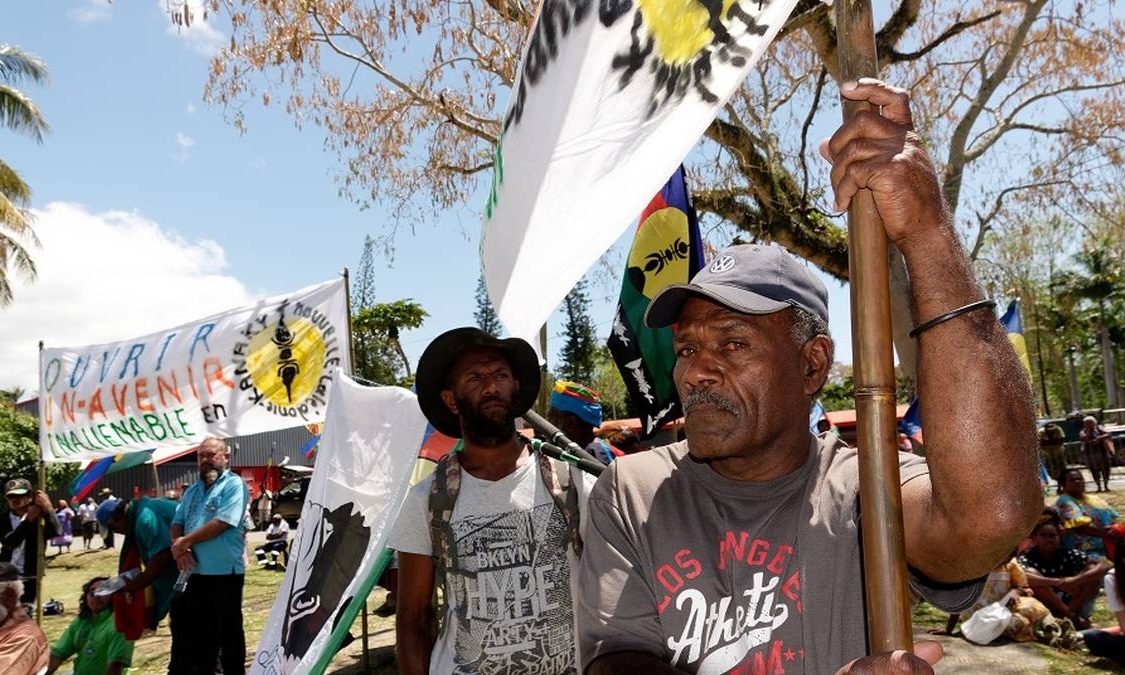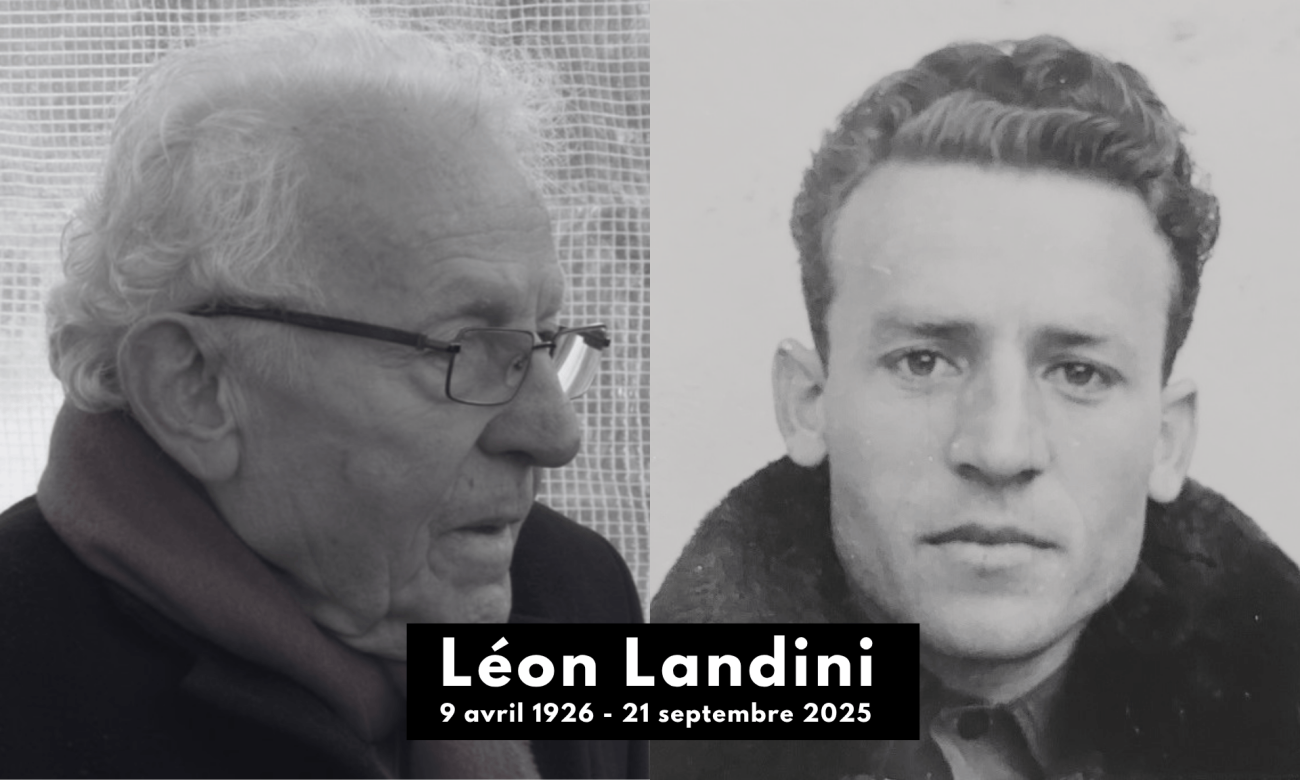The descendants of New Caledonia’s indigenous population, the Kanak inhabitants of the islands before the French seized and colonised it in 1853, want control of their homeland returned to its inhabitants.
They want sovereignty for their islands, although today the Kanaks only comprise 40 percent of the population. The remainder are settlers, for the most part either from mainland France or from other former French colonies, who have been arriving, uninvited by the Kanaks, over the last 170 years.
French colonial conquest
When Napoleon III decreed that New Caledonia (so named by Captain Cook because its landscape reminded him of Scotland) belonged to France, its native inhabitants had not yet divided into classes. They knew nothing of private property. They had no written language.
Their economic system was that known as primitive communism, in which all shared what little wealth there was, and constant warfare took place with other tribes over access to the means of subsistence. Early contact with Europeans had introduced smallpox, which ravaged all the South Sea communities and reduced populations by almost half.
When France laid claim to the islands, they cleared the Kanaks off all the best land and settled them in reservations that covered only some 10 percent of the area they had previously occupied. The Kanaks were treated as slave labour, with many shipped off to work on projects in countries such as Australia or Fiji.
The French then designated the islands as a penal colony, importing over several years some 20,000 convicts, including the workers who had fought in the Paris Commune. These convicts were deployed in the nickel mines, nickel having been discovered there in 1854, work from which the Kanaks were originally excluded.
The Kanaks, primitive though their society was, had a warrior tradition and fought back hard for years against the French invasion and the harsh conditions imposed on them. There were major revolts in 1878, 1917 and from 1976-88, but they were unable to prevail against the superior firepower and manpower mobilised by France. Even the communard ex-convicts were mobilised to fight against them.
A settler-apartheid regime
It was, of course, not in the settlers’ interests for there to be a constant state of warfare with the indigenous population, so periodic efforts were made to grant concessions in order to reconcile the Kanak people to French rule. However, there was no getting away from the fact that the interests of the Kanaks and of the settlers were irreconcilable.
The settlers wanted more and more land both for themselves and, later on, for cattle. They also wanted to mobilise Kanaks to work for them – in nickel mines, after convict labour was abandoned, and on their farms – at the lowest possible price, so they forcibly took Kanaks away from producing their own means of subsistence.
Force was on the side of the settlers, enabling them to take over land and requisition labour at will. The Kanaks were despised as primitives, subjected to a supremacist apartheid regime, and discriminated against at every turn.
Nevertheless, the arrival of the colonisers was not entirely negative, much like the colonisation of Britain by the Romans. They arrived without invitation and for the sole purpose of enriching themselves, carried away many slaves and treated the people with contempt. But it is hard to deny that the Roman occupation benefited Britain in many ways.
The people of New Caledonia were dragged out of primitive society into the modern world. For example, cannibalism was suppressed; and lepers were removed to isolation colonies against the wishes of their people, who did not understand the need for it.
As the Kanaks learnt of the advantages on offer in other parts of the globe, their own desire to partake of these benefits increased year on year. In 1946, they were finally granted French citizenship so that theoretically they were legitimate equals of the settlers at last. However, the discriminatory practices continued – as did, of course, the ill effects of their previous official subjugation.
The land outside the reservations was still monopolised by settlers, as were all the best jobs. And the Kanak people were still universally despised.
It is clear that true equality for the Kanaks is impossible so long as New Caledonia does not receive its independence and its policies are all dictated, or at least approved, by France. Even the United Nations has recognised that New Caledonia needs to be decolonised. To this end, it was placed on the UN list of non-self-governing territories in need of decolonisation in 1946.
France, however, is determined to hang on by hook or by crook. Since the uprising of the 1980s, which forced it to make concessions to the Kanaks in order to secure peace, France has been marking time by holding referendums on independence. Of course, these never result in a vote for independence because the settlers are always in a majority, and until recently have felt that their privileged situation is dependent on French rule.
On the 1980s uprising
According to the January 1985 edition of Lalkar: “Since rigged elections took place in New Caledonia on 18 November [1984], the Kanak minority in these islands – a French colony since 1853 – have been in rebellion against the French settler regime.
“This started with the Kanak Socialist National Liberation Front (FLNKS), representing 43 percent of the population who are Kanaks, boycotting this election, destroying voting forms, attacking town halls and setting up roadblocks to ensure success of the boycott.
“The election was won by the French settler unionist party, the Rassemblement pour la Calédonie dans la République, representing the French settlers who make up 37 percent of the population.
“When Mitterrand’s ‘socialist’ government came to power in France, it did so on the promise of self-determination for New Caledonia – or Kanaky to give it the name preferred by its original inhabitants. However, Mitterrand reneged on this promise as on most of his other promises to the French working class.
“Nevertheless, the rebellion of the Kanaks is making the islands virtually ungovernable. The French government had to send squads of riot police to try to maintain order.
“The riot police and the local settlers have been on the offensive against the Kanaks. On 6 December, French settlers murdered ten Kanaks, including two brothers of Jean Marie Tjibaou, the leader of the FLNKS and president of the provisional government of Kanaky (proclaimed by the FLNKS on 25 November).
“The settlers have also attempted to bomb Tjibaou’s house. However, the Kanaks have been arming themselves by raiding the houses of settlers who own guns.
“Huge nickel deposits are the attraction of New Caledonia as far as French imperialism is concerned. For this reason, it is manoeuvring to avoid giving the territory its independence, manipulating the chauvinism of the settlers for this purpose.”
The unrest continued until a peace deal was reached in 1988. The clashes took the form of a quasi-civil war between independence fighters and loyalists, resulting in the deaths of 80 people and culminating in the 1988 bloodbath known as the Ouvéa cave attack, when separatist militants killed four gendarmes and took 27 hostages.
Finally, France was persuaded to grant concessions in the interests of peace:
“Signed on 26 June 1988, the Matignon accords cemented reconciliation and restored peace to the islands after four years of bloody near-civil war. Negotiated under the auspices of socialist former prime minister Michel Rocard, with representatives from both the pro-independence parties (FLNKS president Jean-Marie Tjibaou) and loyalists (RPCR leader Jacques Lafleur), they were ratified by a referendum with 80 percent of the vote, despite a low turnout (37 percent).
“The aim of these agreements was to correct the socioeconomic imbalances between the communities and set out a ten-year transitional autonomous status for the territory, at the end of which a local referendum on self-determination would be held.” (New Caledonia: Six questions to understand the current crisis by Les Décodeurs, Le Monde, 17 May 2024)
However, the accords demanded concessions not only from the settlers but also from the Kanaks, and to that extent they pleased nobody. Jean-Marie Tjibaou and his deputy Yeiwéné Yeiwéné, who negotiated the accords on behalf of the Kanaks, were assassinated at Ouvéa by a disappointed Kanak activist who regarded them as a sell-out.
To the extent that 40 years later New Caledonia appears no closer to achieving independence, it certainly indicates that France was never acting in good faith but only buying time.
Rigged referenda fail to deliver self-determination
And now history is repeating itself.
The Matignon agreement had provided for a referendum on independence to be held in 1998 after a transitional period, but in the event the referendum was postponed by agreement, presumably because neither side was certain of victory.
The Nouméa accord of May 1998 postponed a vote on sovereignty for another 15-20 years, but it did provide for gradual delegation of greater self-governing powers to the territory during that period, at the end of which it three independence referendums were to be held.
“The accords placed strict restrictions on who could vote in provincial elections and referendums, in an attempt to give greater representation to the Kanak population.
“Successive referendums in 2018 and 2020 have seen nearly half of the population of New Caledonia vote in favour of independence. In 2021, the French government insisted on bringing forward the third independence referendum, scheduled for 2022, despite the pandemic.” (New Caledonians are still fighting to be free of France by Olly Haynes, New Internationalist, 30 May 2024)
Holding the referendum during the pandemic was always going to be more of a problem for the Kanaks than for the settlers. This led the pro-independence FLNKS to call a boycott of the vote, arguing that it violated the terms of the peace process. As a result, on a 37 percent turnout, independence was rejected by 98 percent of those who voted.
But France insisted that ‘economic stability’ necessitated that the vote should be held quickly and that, as there was no minimum turnout requirement specified in the accords, the outcome was legitimate. And this despite the fact that the result quite clearly did not reflect the wishes of the New Caledonian people.
FLNKS engaged itself in lobbying for a new referendum, and its supporters took various actions to further this demand, including a militant strike at a nickel mine, to ensure that France should be persuaded to let go of its fractious colony.
French attempts to cement phoney referendum result
French president Emmanuel Macron, however, decided to move in the opposite direction by promulgating a law, supposedly in the interests of ‘democracy’, to give greater voting rights to settlers.
Under the Matignon accords, voting in provincial elections in New Caledonia had been denied to those settlers who had arrived relatively recently. This meant that both those who were recently arrived in 1988 and those who have arrived since have had no vote in the referendums on independence.
Macron’s proposals would have allowed some 25,000 settlers who had been on the islands for ten years to be admitted to the electoral roll. The result would inevitably have been a huge boost for the anti-independence vote.
If one bears in mind that, no matter what the Kanaks had been forced to agree during negotiations, independence ought to be granted as of right and not subjected to conditions, President Macron’s proposals were nothing short of a provocation.
The warriors of the Kanak nation rose to the occasion: “The city of Nouméa and its suburbs were ablaze for almost two weeks in May. Caught up in riots reportedly involving nearly five thousand young Kanak independence activists, some 200 buildings were burned down, mostly consisting of stores and factories, as well as public facilities, houses, schools, and libraries.
“In response, armed self-defence groups and militias of Europeans formed to protect their neighbourhoods, erecting more than a hundred barricades throughout the city. At least seven people died, including four Kanak.” (In New Caledonia, Kanak people are defending their autonomy by Nathanaëlle Soler, The Jacobin, 4 June 2024)
The damage has been estimated in the hundreds of millions of euros. The government declared a state of emergency on 15 May and Macron was forced to back down and withdraw the legislation.
The state of emergency has now been ended, but the problems have not been resolved and the islands are still suffering some degree of turmoil.
Ultimately, New Caledonia must be given its independence. Its resources must come under the control of its own people. They must be allowed to choose their own government to act in the interests of all its people.
To ensure peace and prosperity, and “to end the appalling asymmetry between the Kanak and Caldo [French settler] populations, which is rooted in colonial violence and conquest, access to education, jobs, wealth and power must be shared”. (New Caledonia: ‘No colonial society can last forever’ by Eric Vuillard, Le Monde, 28 May 2024)
It is understandable that the settlers are reluctant to let go of their privileges, and want to hang on to France as their guarantor, but it is high time that the last bastions of colonialism were liberated.
Once New Caledonia has its independence, there will still be thorny problems to resolve to bring about a reconciliation of the communities, but this is a road that will have to be travelled free from the interference of France or any other self-interested foreign power.
















